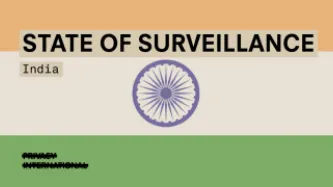Search
Content type: Long Read
… and extracted data directly as it transited to and from Google and Yahoo’s private data centers, which are located …
Content type: Press release
… and extracted data directly as it transits to and from Google and Yahoo’s private data centers. The Snowden …
Content type: Long Read
… Thus, under this power, the government could go directly to Google, Microsoft, or myriad other service providers and …
Content type: News & Analysis
… to Internet Service Providers, telecoms, and companies like Google, Facebook, and Twitter? Can they refuse? While the … actually obtain their information. It's been reported that Google actually handed over data to NSA through secure FTP …
Content type: News & Analysis
… the NSA to collect data from U.S. companies like Yahoo and Google. Upstream allowed the NSA to intercept data in bulk …
Content type: News & Analysis
… Airbus for one is looking to potential customers like Google and Facebook to offer internet access to as-yet …
Content type: News & Analysis
… Background Many of the world’s largest companies, such as Google and Facebook, store their customers’ data in the US. …
Content type: News & Analysis
… Tech giants including Apple Inc, Facebook Inc, Google Inc, Microsoft Corp, Twitter Inc and Yahoo Inc have …
Content type: News & Analysis
… UK’s Investigatory Powers Bill, Apple Inc, Facebook Inc, Google Inc, Microsoft Corp, Twitter Inc and Yahoo Inc …
Content type: News & Analysis
… throughout the day. Financial information? Apple Pay and Google Wallet process your purchases. Locations? Your phone …
Content type: Long Read
… in various transparency reports of companies such as Google, Yahoo, Facebook, etc. Thus, the bulk of the public …
Content type: News & Analysis
… our content on their own servers despite everyone except Google recognising this as an insecure model. In its court …
Content type: Press release
… lawyers, tech companies including the likes of Facebook, Google, Twitter, Yahoo and Microsoft and now three …
Content type: News & Analysis
… knows to give me offers on what I buy. It is how Google knows how to improve my search results and get me to …
Content type: News & Analysis
… notes), every mobile app used (e.g. Whatsapp, Signal, Google Maps), and logs of any other device connecting to the … a web log would reveal that a user has visited e.g. www.google.com or www.bbc.oc.uk , but not the specific page.” …
Content type: News & Analysis
… a variety of reasons, including to serve us advertisements. Google does this . Even Apple, which has claimed to … wants the power to compel service providers, such as Apple, Google, Facebook, and Twitter to hack their users on behalf … form, the integrity of any update received from Apple, Google or other provider would be in serious doubt. If this …
Content type: Long Read
… approaches to Thailand. In their 2014 transparency report, Google revealed that they had rejected every request for …
Content type: News & Analysis
… Agency program which provides access to user data held by Google, Facebook and Microsoft. This is the third spy agency … Guardian which detailed how NSA secretly ordered Apple, Google, Facebook to hand over their users' information. It …
Content type: Advocacy
… this data with third parties, including companies such as Google, without people’s knowledge or consent, usually with …
Content type: Press release
… of expression online. While some big firms like Apple and Google have started adopting stronger encryption standards, …
Content type: News & Analysis
… on various applications such as Facebook, Twitter, Google Mail, and Skype; The lack of oversight of agencies …
Content type: Press release
… largest Internet companies, including Microsoft, Yahoo, Google, Facebook, PalTalk, AOL, Skype, YouTube and Apple. … mass surveillance of every Facebook, Twitter, YouTube and Google user in the country, even if there is no suspicion …
Content type: News & Analysis
… millions of secure websites and products made by Apple and Google were found to be using this lower level of security … left behind by bad decision-making. Everyone from Apple to Google to even the NSA are scrambling to patch the …
Content type: News & Analysis
… largest Internet companies, including Microsoft, Yahoo, Google, Facebook, PalTalk, AOL, Skype, YouTube and Apple. …
Content type: Press release
… largest Internet companies, including Microsoft, Yahoo, Google, Facebook, PalTalk, AOL, Skype, YouTube and Apple. … policy for mass surveillance of residents’ Facebook and Google use 13th July 2014: Week-long hearing considering …
Content type: News & Analysis
… the every-day use of Facebook, Twitter, YouTube and Google as “external” since the servers are located abroad. …
Content type: News & Analysis
… made privacy a selling point for their product. Apple and Google have turned on encryption by default in their mobile …
Content type: News & Analysis
… mass surveillance of every Facebook, Twitter, YouTube and Google user in the UK, even if there is no suspicion that … principles under the Data Protection Directive 1995 against Google's search results. American industry and free …
Content type: Press release
… mass surveillance of every Facebook, Twitter, YouTube and Google user in the country, even if there is no suspicion …
Content type: News & Analysis
… protect yourself from malware . Now, we are seeing Apple, Google, and other companies apply the most essential and …


















